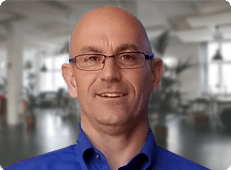Reflecting on Q1: Navigating Financial Challenges with Revenue Cycle Management (RCM)
As we embark on the second quarter of the year, it's an opportune moment to reflect on the financial projections and challenges that shaped the healthcare landscape in Q1. At the beginning of the year, medical group practice leaders identified finance/revenue cycle management (41%) and staffing/HR (29%) as primary focal points for 2024, according to a Jan. 2, 2024, MGMA Stat poll. This underscores the pressing need for strategic approaches to address financial pressures and optimize revenue cycles in the healthcare industry.
Streamlining Financial Processes: In Q1, the focus on improving efficiencies within healthcare organizations remained paramount. Revenue Cycle Management (RCM) services continued to play a pivotal role in streamlining complex financial processes, leveraging technology and automation to reduce administrative burden and ensure accuracy in billing and coding. With the intricate interplay of payers, providers, and patients, RCM services provided a lifeline for navigating the evolving landscape of revenue cycle management.
🔍 Related Articles: The Ultimate Guide to Medical Billing and Revenue Cycle Management Services
Enhancing Revenue Capture: Effective revenue capture remained a top priority in Q1, as healthcare providers sought to maximize reimbursement amidst lower Medicare pay rates and rising operating costs. RCM services employed advanced analytics and revenue optimization strategies to identify potential revenue leakage points and ensure accurate coding, timely claims submission, and proactive denial management. By enhancing revenue capture, healthcare organizations were better positioned to maintain financial stability and invest in further growth initiatives.
Improving Cash Flow Management: Q1 witnessed a concerted effort to optimize cash flow management, with healthcare organizations prioritizing the expeditious reimbursement process and reducing the time between service delivery and payment receipt. Through efficient claims processing and follow-up on outstanding accounts receivable, RCM services played a critical role in maintaining a steady influx of revenue. This enabled providers to meet financial obligations, mitigate the impact of shrinking revenue, and sustain operational viability.
Ensuring Regulatory Compliance: Navigating the complex regulatory landscape of healthcare reimbursement remained a key challenge in Q1. RCM services continued to ensure compliance with ever-evolving regulations such as HIPAA, ICD-10 coding guidelines, and payer-specific requirements. By staying abreast of regulatory changes and implementing compliant billing practices, healthcare organizations mitigated the risk of audits, penalties, and legal liabilities, safeguarding their financial integrity.
Enhancing Patient Experience: Q1 saw a continued emphasis on enhancing the patient experience through streamlined billing processes and transparent communication regarding financial obligations. RCM services indirectly contributed to patient satisfaction by reducing billing errors, offering convenient payment options such as patient portals and online payment, and providing insights into claim denials. A positive billing experience fostered patient loyalty and advocacy, underscoring the importance of patient-centric approaches in revenue cycle management.
The Importance of Reports and Data Analysis: In Q1, the significance of reports and data analysis in optimizing revenue cycles became increasingly evident. Practices prioritized building better reporting and visibility into performance metrics for faster analysis and process improvement. Improved insights into claim denials and identification of gaps in the prior authorization process allowed for targeted interventions to minimize revenue leakage and improve overall financial performance.
Why Healthcare Providers Are Turning to RCM Outsourcing: Amidst the evolving challenges of Q1, healthcare providers increasingly turned to RCM outsourcing to navigate financial uncertainties and enhance revenue cycles. Approximately 61% of providers plan to outsource RCM tasks in the future, according to the 2022 State of Healthcare Performance Improvement report. The global RCM outsourcing market is expected to grow by 17% annually, reaching US$62.4 billion by 2028. Outsourcing RCM offers several benefits, including streamlined billing and coding processes, improved cash flow management, and access to specialized expertise.
At Advanced Data Systems (ADS), we understand the importance of tracking RCM performance and identifying areas for improvement. Visit our website at www.adsc.com to learn more about our variety of reporting tools and how we work with our providers to build a shared understanding of goals. With strong communication and regular goal reviews, we ensure success for our clients. Plus, we back it up with our 90-day guarantee.
As we reflect on the first quarter of the year, it's evident that navigating financial challenges in healthcare requires strategic approaches and innovative solutions. Revenue Cycle Management (RCM) services have emerged as indispensable allies, offering comprehensive solutions to streamline financial processes, enhance revenue capture, and ensure regulatory compliance. Looking ahead to the rest of the year, healthcare organizations must continue to invest in robust RCM solutions to optimize efficiency, maximize profitability, and deliver high-quality patient care in an ever-evolving healthcare landscape.
To help guide your decision-making process, check out our free and informative “From In-House to Outsourced RCM: Everything You Need to Know” ebook today.
About Gene Spirito, MBA
Gene has been involved in sales and deploying well over 1,000 revenue cycle management and billing solutions for medical practices, groups, networks, and laboratories of every specialty. With more than 25 years’ experience, Gene has guided so many ADS clients toward the configuration that would work best for them such as services through MedicsRCM, or in-house automation with the MedicsCloud Suite. Gene has an undergraduate from Villanova University, and an MBA from Temple University. Not surprisingly, Gene’s an avid Wildcats fan (the VU basketball team).







